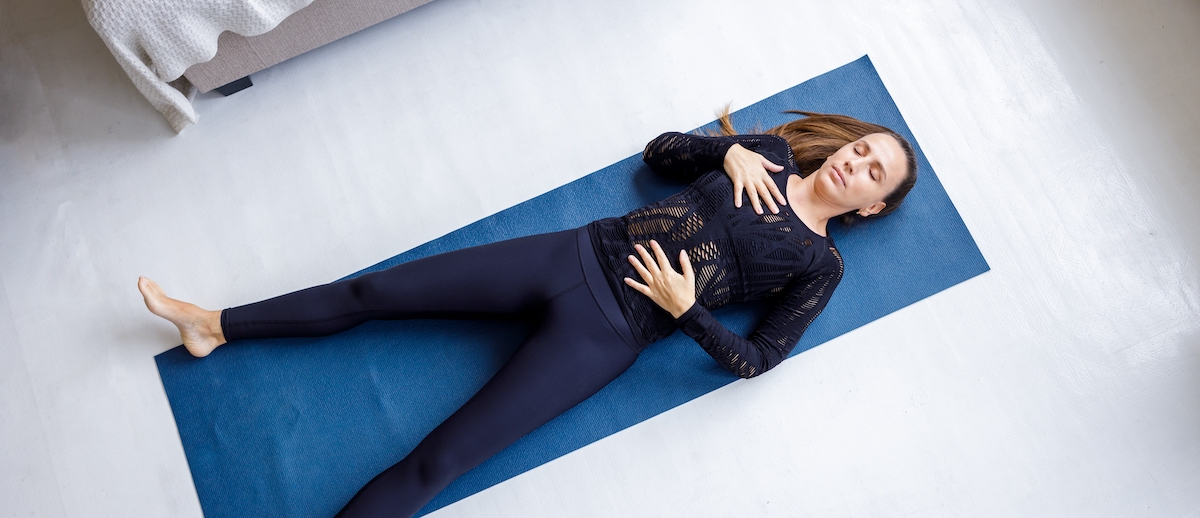Tips for better sleep during PMS or PMDD

With premenstrual syndrome (PMS), a person can experience one or more symptoms in the days immediately prior to menstruation. Premenstrual dysphoric disorder (PMDD) is an extreme form of PMS that affects up to 8% of people and which intensifies those symptoms, especially with regards to mood changes.
Those affected by PMS or PMDD often find that they also experience changes to their sleep patterns, either sleeping too long or not getting enough sleep. Our blog looks at some common symptoms and then provides some handy tips to help achieve a more balanced sleep during these times.
What are the physical and emotional changes before a period?
Up to 90% of people experience physical or emotional changes before menstruation. The most common changes are bloating, headaches, anxiety or irritability, lack of energy, reduced sex drive, tension or restlessness and a change in sleep patterns.
For these changes to be considered PMDD, they must interfere with a person’s life in some way, such as restricting their ability to work or keep up with a social life.
Insomnia that consistently occurs the week before menstruation but resolves afterwards is more likely to be caused by hormonal changes and is known as ‘Period Insomnia’. During this time, people with PMDD also produce less melatonin, the ‘sleep hormone’, and their bodies also have a reduced response to the hormone. Increases in the hormone progesterone in the lead up to menstruation can also contribute to this.
Those that deal with PMS and PMDD may also find that that their ‘sleep architecture’ changes, i.e., how long they spend in each of the phases of sleep. Studies have shown that the days leading up to menstruation can go hand in hand with more light sleep and less rapid eye movement (REM) sleep.
What can help?
Firstly, if your symptoms are impacting on your quality of life, talk to your doctor or other medical professional for advice on possible treatments. You’ll also see below some lifestyle tips that could also help.


Sleep tips to combat Period Insomnia
Small lifestyle tweaks and good sleep hygiene can help to offset the effects of PMS and PMDD on your sleep. Some of these are done during the day and developing a good bedtime routine, combined with the right kind of bedding, can help achieve a better sleep – at any time of the month.
- Exercise: Make time to exercise for 30 minutes every day, preferably outside and early in the day. Even a gentle stroll will help.
- Natural light: Getting exposure to bright, natural light for at least 30 minutes every day – this will help stop melatonin production once you’ve woken up.
- Regular bedroom sleep/wake cycle: Waking and going to bed at the same time every day.
- Nodding off: Avoid long naps, especially in the late afternoon or evening.
- Optimise your sleep environment: Opt for bedding that is breathable and temperature regulating. For more on this, check out our individually handcrafted, 100% British made wool bedding – especially our award-winning British wool duvets.
- Cool it: Keep your bedroom dark, cool and quiet during sleep. You can read more about bedroom temperatures here.
- Pre-bedtime routine: Develop a pre-bedtime routine that involves reading, listening to music or doing some gentle yoga.
- Switch off: Turn off the TV and put away any devices at least 30 minutes before bedtime.
- Relax: Practice relaxation techniques, such as Diaphragmatic Breathing (for more details, see below).
- Cut down on 'stimulants': Avoid caffeine at least 6 hours before bedtime, and alcohol and cigarettes at least 3 hours before bedtime. Caffeine and nicotine are all stimulants, making it more difficult to fall asleep, and alcohol can disrupt the REM cycle during your sleep.
- Watch what you eat - and when: Eat smaller meals in the evening and avoid snacking on heavy, greasy or spicy foods just before bedtime.


What is Diaphragmatic breathing?
This is sometimes as called belly or tummy breathing and it engages the large muscle at the base of your lungs. This exercise can help to reduce stress experienced during PMS or PMDD and increase relaxation. It also strengthens your diaphragm, increasing the efficiency of your breathing. Here’s how to do it:
- While lying down, place one hand over your upper chest and the other hand at the top of your belly, right below your rib cage.
- Breathe in through your nose so that your belly pushes against your hand. Your other hand and your chest should remain as still as possible.
- While continuing to keep your chest still, tighten your stomach muscles and exhale.
- Repeat the process.
Many of us aren’t used to engaging our diaphragm when we breathe, so this exercise may take a bit of practice. Try starting with just a few cycles of diaphragmatic breathing when you get into bed, then gradually increase the time to maximise the benefits.
For further information about our natural, sustainable bedding products, please get in touch with the team on 01752 345399 or email. We’re here to help!
Ref: Sleep Foundation, NHS


